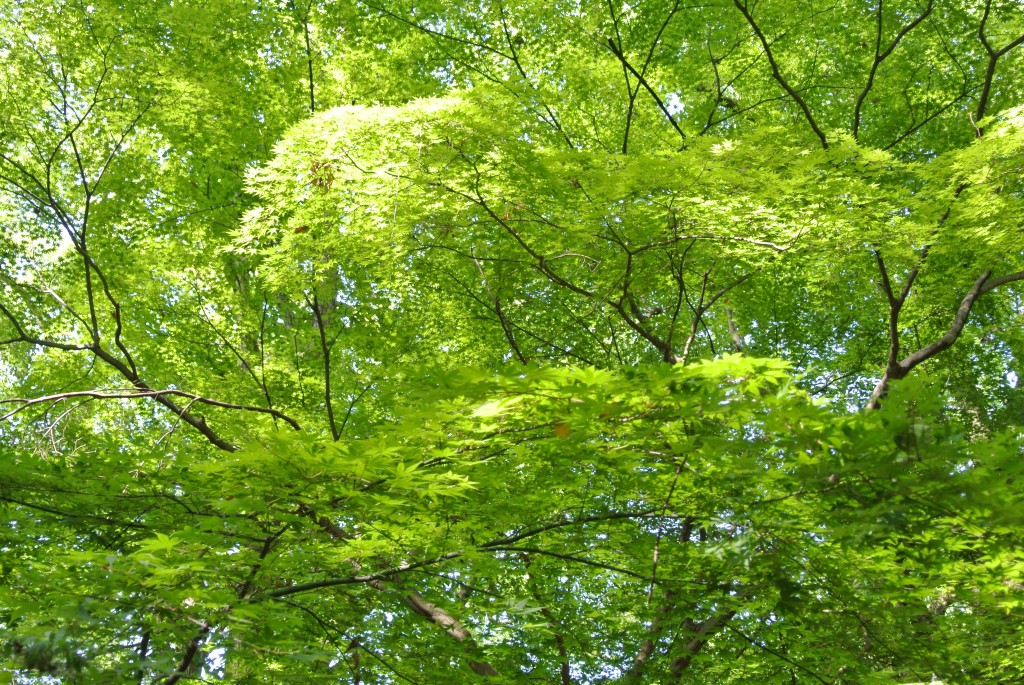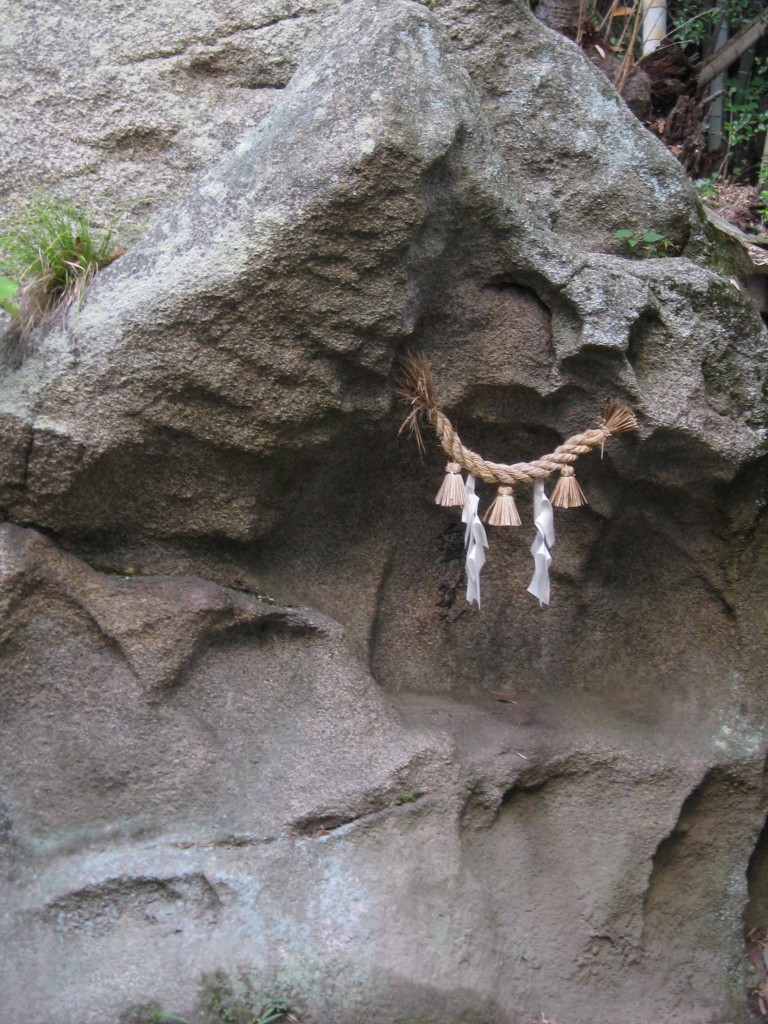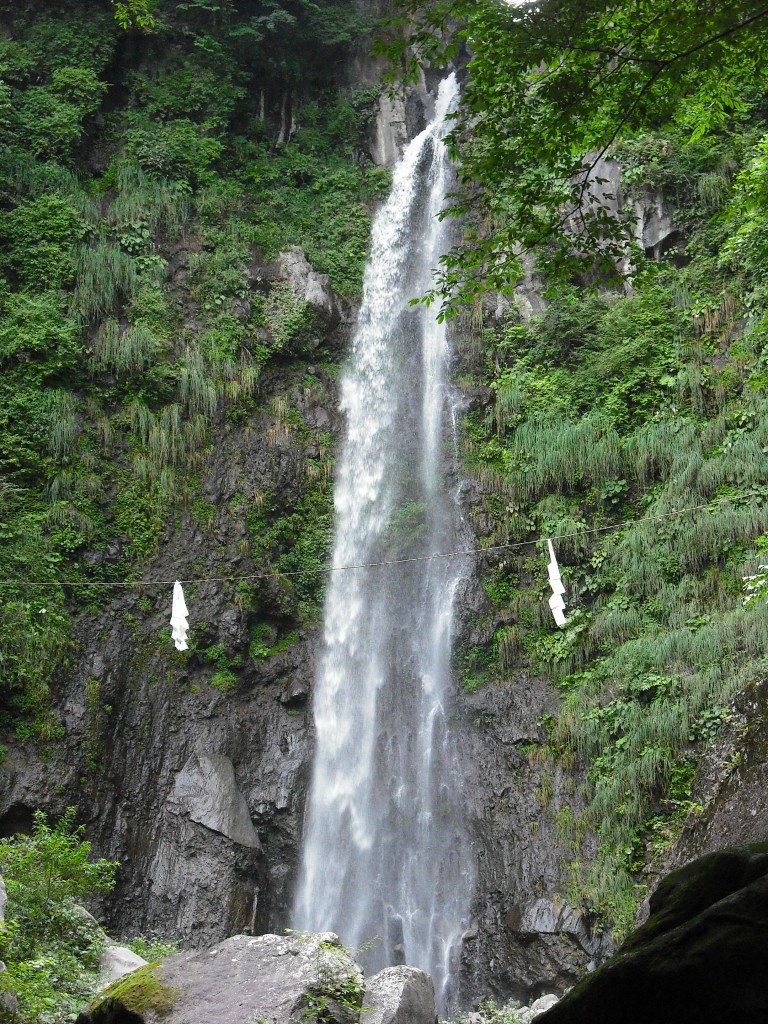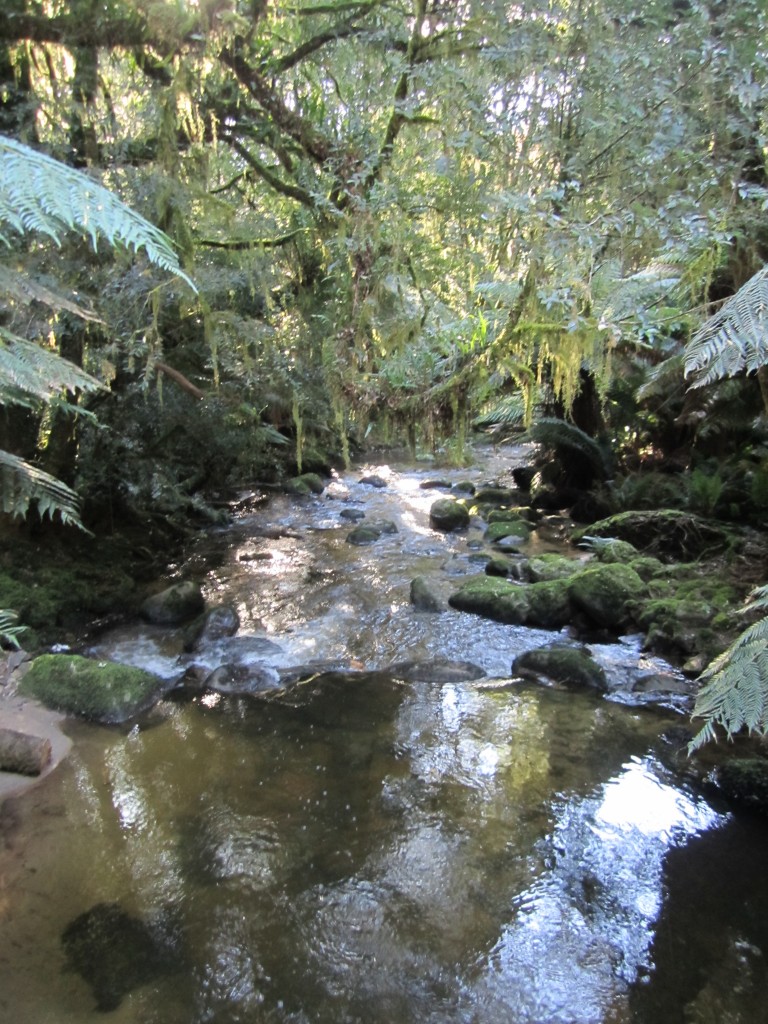
Trees of life
Animism, shamanism, pantheism… at the core of each is a realisation of something deeper than the material world. Shinto embraces animism and shamanism: is it pantheistic too?
The Shinto Online Network Association, run by shrine priests, has this to say: “Shinto is not pantheism which sees all the existence on this world as Kami itself.” In other words, kami exist outside the world as we know it, though they may descend into it. Thus certain features of the earth are divine, rather than the entire world. As the site says, “Shinto does not impersonate nor divinize nature itself, which is the physical existence that works according to its own system. Shinto considers that people feel awe to some natural elements which have especially great influence to human life, and worship their spirituality and pray for their blessing.”
Yet though Shinto may not be a pantheist religion, it shares an outlook that has much in common with it. In this respect it may be of interest to readers to see the broad-ranging reading list drawn up by the World Pantheist Movement for its members. These cover Hindu, Taoist and neo-pagan titles, which are close in many instances to the thinking of Shinto.
In the end of course, there are better places to look for ultimate truth than between the covers of a book. “Let nature be your teacher,’ said Wordsworth, and for many of us mountains are a more uplifting presence than any kind of concocted dogma. Nonetheless, as humans we need signposts to guide us on our way, and it may just be that in these books are the pointers we seek to hear the true voice of nature.
***************************************************
Essential Reading on Pantheism.
Wherever possible cheap recent paperback editions are mentioned. In some cases the US and UK publishers of the same book may be different.
1. Introduction
Harrison, Paul, Scientific Pantheism. Routledge, London and New York, 1994.
Harvey, Graham and Hardman, Charlotte, Paganism Today, Thorsons, London 1996.
Adler, Margot, Drawing Down the Moon, Penguin Books, New York, 1997.
 2. History:
2. History:
Hinduism: Hume, Robert, The Thirteen Principal Upanishads, Oxford University Press (India), 1995.
Edgerton, Franklin, The Bhagavad Gita, Harvard Oriental Series, 1994.
Buddhism: De Bary, William, ed., The Buddhist Tradition, Vintage Books, New York, 1972.
Kalupahana, David, Nagarjuna, State University of New York Press, 1986.
Mookerjee, Ajit and Khanna, Madhu, The Tantric Way, Thames and Hudson, London, 1977.
Cleary, Thomas, The Flower Ornament Scripture, Shambala, Boulder, 1984.
Cleary, Thomas, Entry into the Inconceivable, University of Hawaii Press, Honolulu, 1983.
Chung Yuan, Chang, Original Teachings of Ch’an Buddhism, Grove Press, New York, 1982.
Suzuki, Daisetz, Essays in Zen Buddhism, Grove Press, New York, 1986.
Taoism: Schipper, Kristofer, Taoist Body, University of California Press, Berkeley, 1982.
Wu, John, Tao Teh Ching, Shambala, Boston, 1989.
Palmer, Martin, The Book of Chuang Tzu, Penguin Arkana, London and New York, 1996.
Greece and Rome: Kahn, Charles, The Art and Thought of Heraclitus, Cambridge Uni Press, Cambridge, 1979.
Long, A. A. & Sedley, D. N., eds, The Hellenistic Philosophers, volume 1, Cambridge Uni Press, Cambridge, 1987. Barnes, Jonathan, Early Greek Philosophy, Penguin, London and New York, 1987.
Marcus Aurelius, Meditations, Penguin, London and New York, 1969.
Lucretius, On the Nature of the Universe, trs R. E. Latham, Penguin, London and New York, 1994.
Plotinus, The Enneads, ed John Dillon, Penguin, London and New York, 1991.
3. History:
Monotheist and modern Judaism
Cohen, A., Everyman’s Talmud, Schocken Books, New York, 1975
Scholem, Gershom, Kabbalah, Meridian, London and New York, 1974.
Matt, Daniel, The Essential Kabbalah, Castle Books, Edison, 1997.
Islam: Ibn Arabi, The Bezels of Wisdom, SPCK, London, 1980.
Massignon, Louis, Al Hallaj, ed. Herbert Mason, Princeton University Press, Princeton, 1994.
Christianity: Meister Eckhart, Selected Writings, tr. by Oliver Davies, Penguin Books, London and New York, 1994.
Jakob Boehme, The Way to Christ, trs w. Zeller, Paulist Press, New York, 1978.
Post-Christian: Bruno, Giordano, Cause, Principle and Unity, ed., Richard Blackwell, C U P, Cambridge, 1998. Spinoza, Benedict, A Spinoza Reader, Princeton University Press, Princeton, 1994.
Toland, John, Pantheistikon, London, 1721, and Letters to Serena, London, 1704.
Hegel, Georg, The Philosophy of History, Hackett Publishing Co., 1988.
Wordsworth, William, The Prelude, a Parallel Text, Penguin Books, 1996.
Whitman, Walt, Leaves of Grass, Penguin Books, 1997.
Ernst Haeckel, The Riddle of the Universe, Prometheus Books, Buffalo, 1992.
Robinson Jeffers, The Collected Poetry, Stanford University Press, 1989.
Calaprice, Alice, The Quotable Einstein, Princeton University Press, Princeton, 1996.
Lawrence, D. H., The Universe and Me, Henry Taylor, New York, 1935.
 4. The Divine Universe
4. The Divine Universe
Otto, Rudolf, The Idea of the Holy, trs John Harvey, Oxford University Press, New York, 1968.
Hume, David, Dialogues Concerning Natural Religion, Oxford University Press, New York, 1994.
Hawking, Stephen, A Brief History of Time, Bantam Doubleday Dell, 1998.
Carl Sagan, Pale Blue Dot, Brilliance Corporation, 1994.
Guth, Allan, The Inflationary Universe, Helix Books, 1998.
Smolin, Lee, The Life of the Cosmos, Oxford University Press, 1998.
Per Bak, How Nature Works, Oxford University Press, Oxford, 1997.
Dennet, Daniel, Darwin’s Dangerous Idea, Penguin Books, London 1995.
Dawkins, Richard, The Blind Watchmaker, Penguin Books, London, 1988
Barrow, John, & Tipler, Frank, The Anthropic Cosmological Principle, Oxford University Press, 1988.
5. Sacred Nature
Regenstein, Lewis, Replenish the Earth, SCM Press, London, 1991.
McGaa, Ed, Mother Earth Spirituality, Harper San Francisco, 1990.
Miller, Lee, From the Heart: Voices of the American Indian, Vintage Books, 1996.
Lovelock, James, Gaia, Gaia Books, London, 1991.
Goodenough, Ursula, The Sacred Depths of Nature, Oxford University Press, 1998.
Stewart, Ian, Life’s Other Secret, John Wiley, London and New York, 1998.
E. O. Wilson, The Diversity of Life, W. W. Norton, 1993.
Cohen, Michael, Reconnecting with Nature, Project Nature Connect, Friday Harbor, Washington, 1995.
Roszak, Theodore, Ecopsychology, Sierra Club Books, San Francisco, 1995.
6. Ethics.
MacIntyre, Alasdair, A Short History of Ethics, Macmillan, 1966. Singer, Peter, Animal Liberation, Avon Books, 1991. Stone, Christopher, Earth and Other Ethics, Harper & Row, New York, 1987
Leopold, Aldo, A Sand County Almanach, Oxford University Press, New York, 1968.
Sessions, George, ed, Deep Ecology for the 21st Century, Shambala, Boston, 1995.
United Nations, International Covenant on Civil and Political Rights, and International Covenant on Economic, Social and Cultural Rights, United Nations, New York, 1966.
7. Ritual, meditation and mysticism.
Ayensu, Edward and Whitfield, Philip, The Rhythms of Life, Marshall Edi- tions, London 1982. Devall, Bill and Sessions, George, Deep Ecology, Peregrine Smith Books, Salt Lake City, 1985.
Ian Hutton, Stations of the Sun, Oxford University Press, Oxford & New York, 1996.
Albery, Nicholas, The Natural Death Handbook, Natural death centre, London, 1997.
Kabat-Zinn, Jon, Full Catastrophe Living, Dell Publishing, New York, 1990.
Woods, Richard, Understanding Mysticism, Image Books, New York, 1980.
Roberts, Elizabeth and Amidon, Elias, Earth Prayers, Harper San Francisco, 1991.
Mosley, Ivo, Earth Poems, Harper San Francisco, 1996.
8. Controversies
Rey, Georges, Contemporary Philosophy of Mind, Blackwell, Oxford, 1997. Churchland, Paul, Matter and Consciousness, MIT Press, Cambridge Massachusetts, 1988.
|Popper, Karl and Eccles, John, The Self and Its Brain, Routledge and Kegan Paul, London and Boston, 1977.
De Chardin, Teilhard, The Phenomenon of Man, Harper Collins, 1975.
Fox, Matthew, Original Blessings, Bear & Company, Santa Fe, 1983.
Head, Joseph and Cranston, Sylvia, The Phoenix Fire Mystery, Point Loma Publications, 1994.
Blackmore, Susan, Dying to Live, Grafton, London, 1993.
Williamson, John B., and Schneidman, Edwin, Death: Current Perspectives, Mayfield Publishing Company, 1995.

Divine nature (courtesy Graham Ranft)

http://zeldauniverse.net/forums/Thread/179024-Are-we-living-in-God-s-Dream/?postID=5687884#post5687884
Thought that this post by myself over @The Zelda Universe Forums would be quite relevant!!
I see you identify yourself as a Panentheist: “I’m personally more of a Panentheist, rather than a strict Pantheist, as I believe in different “levels” of nature”. The interesting thing about Shinto is that it has no ideological stance as such and doesn’t need or wish to make arguments based on words. I think that’s what attracts a lot of Westerners. The vagueness is perhaps part of the mystical. ‘Those who speak do not know…..’